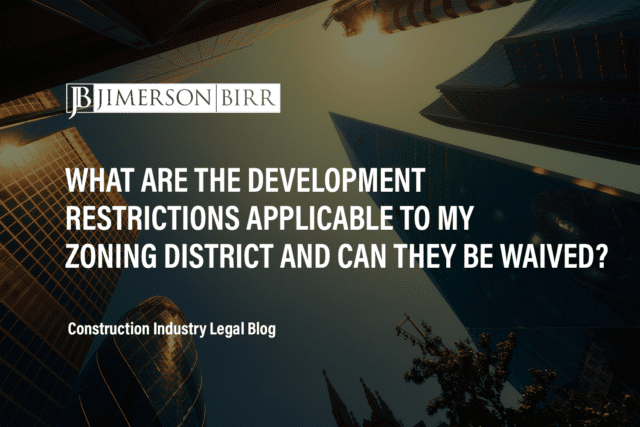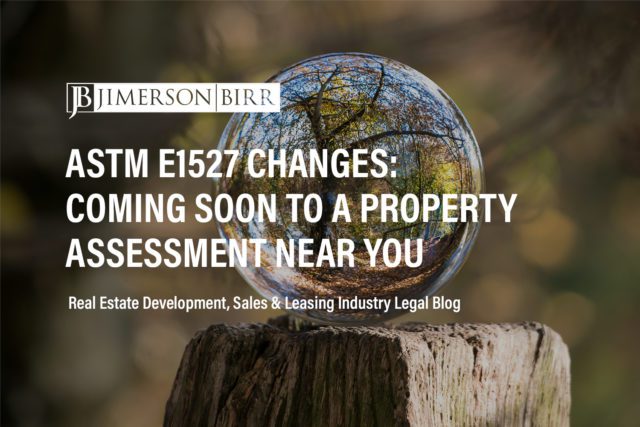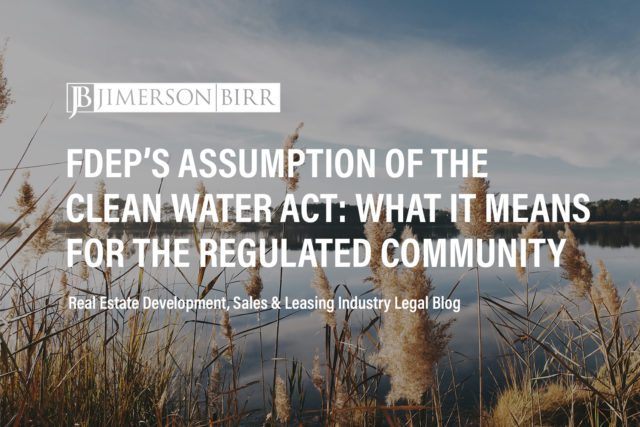What does wetlands permitting entail?
Wetlands permitting is a crucial aspect of environmental law in Florida, given the state’s vast and ecologically diverse wetlands. This permitting process, mandated by state and federal laws, regulates activities that may impact these ecosystems. As such, wetlands permitting aims to protect, preserve, and restore the natural environment while ensuring sustainable development.
Typically, the wetlands permitting process involves two primary regulatory authorities in Florida: the Florida Department of Environmental Protection (FDEP) and the US Army Corps of Engineers (USACE). The FDEP manages permits under the Environmental Resource Permitting (ERP) program, as provided by Florida Statutes Chapter 373 and Florida Administrative Code Chapter 62-330. Meanwhile, the USACE issues permits under Section 404 of the federal Clean Water Act, as codified in 33 USC § 1344.
For instance, a land developer who wants to fill a wetland area for a construction project must first obtain a permit from FDEP and USACE. This dual permitting process ensures thorough evaluation of any proposed development and minimization of adverse environmental impacts. Another example involves coastal wetlands, where the Florida Department of Economic Opportunity or the local government may require additional permits depending on the specific location and project scope.
Need help regarding environmental due diligence, permitting, mitigation, or compliance? Schedule your consultation today with a top environmental law attorney.
In Florida, which laws and regulations apply to wetlands permitting?
At the state level, the primary regulatory framework stems from the Florida Water Resources Act (Florida Statutes Chapter 373) and the associated rules in the Florida Administrative Code Chapter 62-330. These statutes and regulations establish the Environmental Resource Permitting (ERP) program, implemented by the Florida Department of Environmental Protection (FDEP) and delegated to some Water Management Districts.
At the federal level, the key legislation is the Clean Water Act (CWA), specifically Section 404 (33 USC § 1344). This provision grants the US Army Corps of Engineers (USACE) the authority to issue permits to discharge dredged or fill material into waters of the United States, including wetlands. In addition, the USACE coordinates with the Environmental Protection Agency (EPA), which has oversight responsibilities under the CWA.
To address potential impacts, both state and federal wetlands permitting processes require coordination with other agencies, such as the US Fish and Wildlife Service, the National Marine Fisheries Service, and the State Historic Preservation Office. Accordingly, the wetlands permitting process in Florida involves a comprehensive, multi-agency review designed to protect these valuable ecosystems.
What are common issues regarding wetlands permitting that lead to litigation?
The following issues are among the most common in actions regarding wetlands permitting in environmental law matters:
- Jurisdictional disputes: Conflicts often arise when determining which agency has jurisdiction over a wetland area, as state and federal regulations may apply. Two sets of rules may lead to confusion and disagreements over permitting requirements and regulatory authority.
- Permit denials or modifications: Developers and property owners may challenge permit denials or imposed conditions that they believe are unjustified, overly restrictive, or based on incorrect interpretations of applicable laws or regulations.
- Permit violations: Regulatory agencies or third parties may allege that permit holders have failed to comply with permit conditions, which can lead to enforcement actions, fines, and potential revocation of the permit.
- Endangered species and habitat concerns: Generally, projects that may impact endangered species or critical habitats face legal challenges from environmental groups or concerned citizens who argue that the permitting process did not adequately address these issues.
- Historic and cultural resources: Similar to endangered species concerns, disputes may arise if a proposed project could affect historic or cultural resources. Parties may challenge the permitting process for not sufficiently addressing these impacts.
When a set of facts is appropriate for legal intervention, there are many paths a claimant may take. We are value-based attorneys at Jimerson Birr, which means we look at each action with our clients from the point of view of costs and benefits while reducing liability. Then, based on our client’s objectives, we chart a path to seek appropriate remedies.
To determine whether your unique situation may necessitate litigation, please contact our office to set up your initial consultation.
What claims about wetlands permitting do plaintiffs generally bring to court, and what are common legal defenses to those claims?
Common claims that real estate developers and businesses face related to wetlands permitting include:
- Violation of state or federal wetlands permitting laws and regulations
- Non-compliance with permit conditions or mitigation requirements
- Unlawful discharge of pollutants into wetlands or adjacent waters
- Failure to obtain necessary permits or authorizations
Common legal defenses real estate developers and businesses raise against claims related to wetlands permitting include:
- Compliance with all applicable permitting requirements and conditions
- Lack of jurisdiction or authority by the regulating agency
- Absence of a significant impact on wetlands or protected resources
- Valid exemptions or exclusions under appropriate state or federal laws
- Equitable defenses, such as laches, estoppel, or waiver, if the plaintiff unreasonably delayed in bringing the claim or if the defendant relied on the plaintiff’s conduct to their detriment
Please contact our office to set up your initial consultation to see what actions or defenses may be available for your unique situation.
What are effective measures to minimize the risk of litigation over wetlands permitting?
Consider implementing the following measures:
- Conduct thorough due diligence: Investigate the project site’s environmental conditions, including wetlands, endangered species, and cultural resources, before purchasing or developing the property.
- Engage qualified experts: Collaborate with environmental consultants, engineers, and legal professionals experienced in wetlands permitting and compliance to navigate complex regulatory requirements.
- Proactively communicate with regulatory agencies: Establish and maintain open communication channels with relevant state and federal agencies to ensure a clear understanding of permitting requirements and expectations.
- Develop and implement robust compliance plans: Create and follow a comprehensive plan to meet all permit conditions, including monitoring, reporting, and mitigation measures.
- Seek early stakeholder engagement: Engage with interested parties, such as environmental groups, neighbors, and local government entities, to address concerns and prevent potential opposition or legal challenges.
Frequently Asked Questions
- What is the difference between state and federal wetlands permitting requirements?
Florida and federal wetlands permitting requirements can differ in jurisdiction, definitions, and procedural aspects. While the USACE oversees federal regulations under the Clean Water Act, the FDEP and local water management districts oversee state regulations. Understanding and complying with state and federal requirements is essential, as they can overlap or vary depending on the specific project and location.
- How do I determine if my project will impact wetlands?
To determine whether your project will impact wetlands, you should engage a qualified environmental consultant to perform a wetland delineation. This process involves identifying, mapping, and documenting the presence and extent of wetlands on your property using established criteria, such as vegetation, soil, and hydrology.
- Can I appeal a wetlands permit denial or modification?
Yes, you may appeal a wetlands permit denial or modification. For example, suppose a state or federal agency denies or modifies your permit application. In that case, you generally have the right to request an administrative hearing or appeal the decision through the appropriate agency’s administrative process. It is crucial to consult an experienced environmental attorney to assist with the appeal and ensure compliance with all procedural requirements and deadlines.
Have more questions about an environmental law-related situation?
Crucially, this overview of wetlands permitting does not begin to cover all the laws implicated by this issue or the factors that may compel the application of such laws. Every case is unique, and the laws can produce different outcomes depending on the individual circumstances.
Jimerson Birr attorneys guide our clients to help make informed decisions while ensuring their rights are respected and protected. Our lawyers are highly trained and experienced in the nuances of the law, so they can accurately interpret statutes and case law and holistically prepare individuals or companies for their legal endeavors. Through this intense personal investment and advocacy, our lawyers will help resolve the issue’s complicated legal problems efficiently and effectively.
Having a Jimerson Birr attorney on your side means securing a team of seasoned, multi-dimensional, cross-functional legal professionals. Whether it is a transaction, an operational issue, a regulatory challenge, or a contested legal predicament that may require court intervention, we remain tireless advocates at every step. Being a value-added law firm means putting the client at the forefront of everything we do. We use our experience to help our clients navigate even the most complex problems and come out the other side triumphant.
If you want to understand your case, the merits of your claim or defense, potential monetary awards, or the amount of exposure you face, you should speak with a qualified Jimerson Birr lawyer. Our experienced team of attorneys is here to help. Call Jimerson Birr at (904) 389-0050 or use the contact form to schedule a consultation.

We live by our 7 Superior Service Commitments
- Conferring Client-Defined Value
- Efficient and Cost-Effective
- Accessibility
- Delivering an Experience While Delivering Results
- Meaningful and Enduring Partnership
- Exceptional Communication Based Upon Listening
- Accountability to Goals











